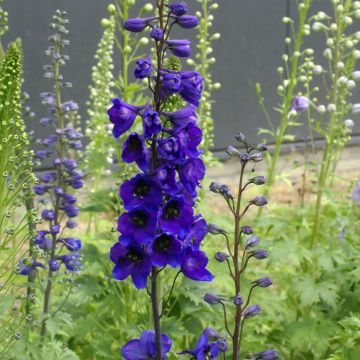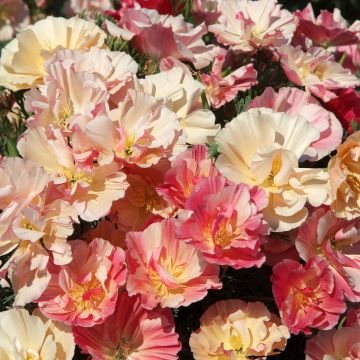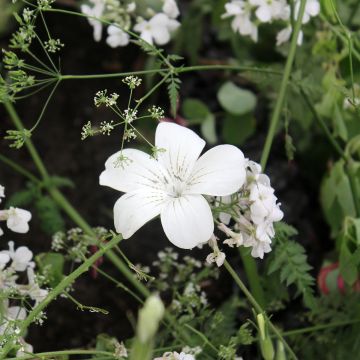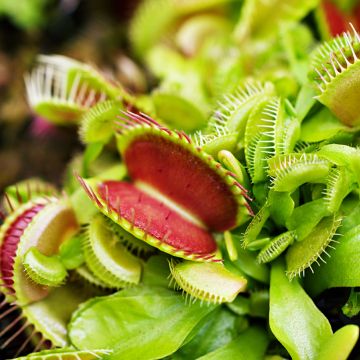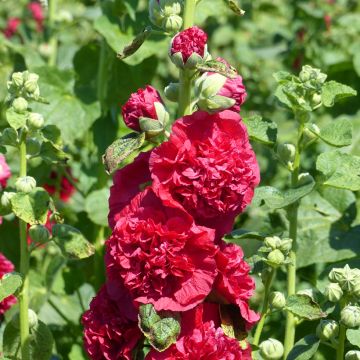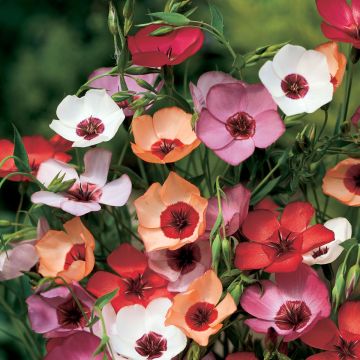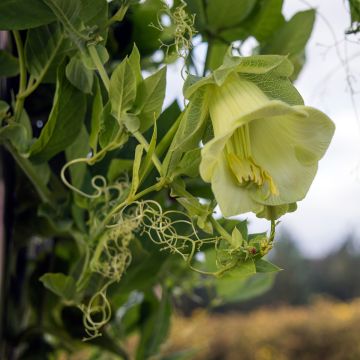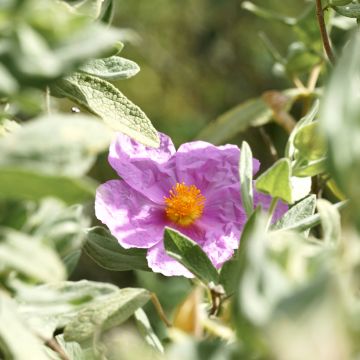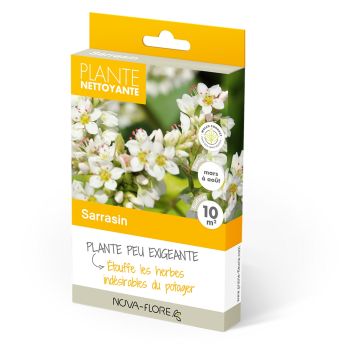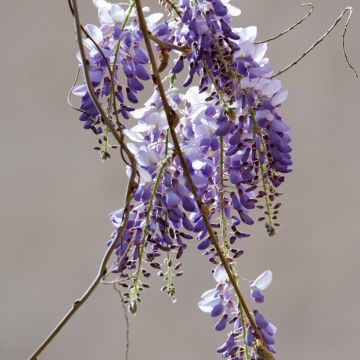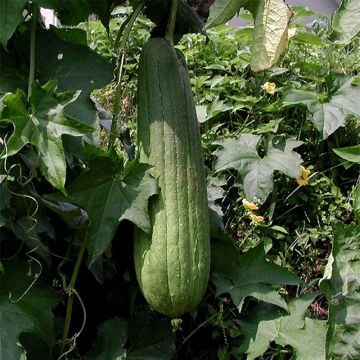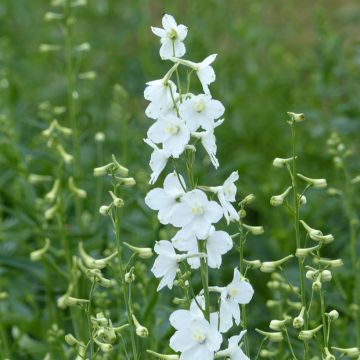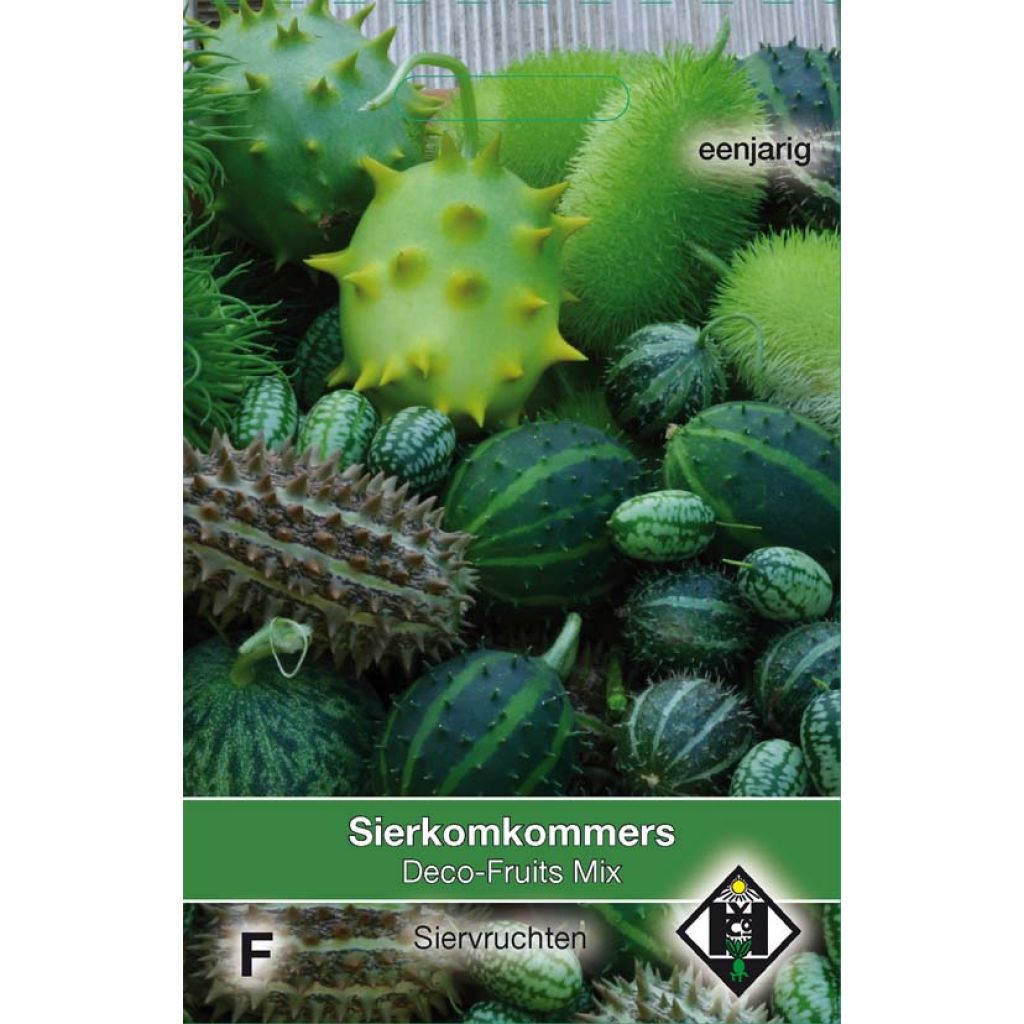

Cucumis Deco Fruits Mix Seeds - Ornamental cucumber mix
Cucumis Deco Fruits Mix Seeds - Ornamental cucumber mix
Cucumis Deco Fruits Mix
Ornamental cucumber and melon mix.
Special offer!
Receive a €20 voucher for any order over €90 (excluding delivery costs, credit notes, and plastic-free options)!
1- Add your favorite plants to your cart.
2- Once you have reached €90, confirm your order (you can even choose the delivery date!).
3- As soon as your order is shipped, you will receive an email containing your voucher code, valid for 3 months (90 days).
Your voucher is unique and can only be used once, for any order with a minimum value of €20, excluding delivery costs.
Can be combined with other current offers, non-divisible and non-refundable.
Home or relay delivery (depending on size and destination)
Schedule delivery date,
and select date in basket
This plant carries a 6 months recovery warranty
More information
We guarantee the quality of our plants for a full growing cycle, and will replace at our expense any plant that fails to recover under normal climatic and planting conditions.
Would this plant suit my garden?
Set up your Plantfit profile →
Description
Deco Fruits Mix brings together various ornamental species of cucumbers, gherkins and melons that are extremely easy to sow. These cousins of the traditional vegetable are very fast-growing creeping or climbing annuals that produce fruit that are as original as they are decorative, and that are relatively uniform in size. Small, spiky or hairy, oval or round cucumbers mix with tiny striped melons in a range of green to greyish hues. The melon bears small fruits that become orange once ripe. These unusual plants can be used in floral arrangements, table decorations, or mixed together in container displays. Easy to grow, they appreciate warm, sheltered situations.
Cucumbers and melons belong to the family Cucurbitaceae. Two species are usually grown in the garden for their refreshingly tasty fruits: Cucumis sativa, which includes cucumbers and gherkins, and its cousin Cucumis melo, the melon. This Deco Fruits Mix includes many other species that are used exclusively for ornamental purposes: Cucumis africanus, C. anguria, C. canoxii, C. carolinus, C. dipsaceus, the melon variety C. melo 'Queen Anne', C. myriocarpus and Zehneria scabra. They are annuals or perennials in their natural environments and are widespread in all the warm regions of the world, from Australia to Africa and South Asia. They are tendril climbers, or voluble climbers with a disorganized, prostrate growth habit, that produce stems reaching 1.20 m to 1.80 m in length, depending on the plant. Flowering takes place from June to September, in the form of white or yellow flowers. Each plant produces unisexual flowers of two types, male or female. They produce fruits that are 1 cm to 6 cm long, oval to round, more or less hairy or spiky, solid coloured or striped, and vary from a very soft green to grey. The small melons of the Pocket Queen Ann variety are yellow with orange stripes.
Sow these cucumbers, melons and gherkins in the spring, under heated cover, the same way as if they were vegetable plants. Then plant them in the open ground or in window boxes. Their unusual fruits can be used to create all sorts of original decorations. They bring a touch of exoticism and whimsy to a bowl of fruit, mixed with clusters of grapes, apples, pears, the leaves of Virginia creeper, mini pumpkins and many other things. Skewered onto the end of a thin metal wire, they can even be added to a bouquet of flowers, or simply combine them with Chinese lantern (Physalis franchetti) and small bittergourds in a bowl placed on the table. The fruit keeps for approximately 3 months before having to be thrown away.
Report an error about the product description
Flowering
Foliage
Plant habit
Botanical data
Cucumis
Deco Fruits Mix
Cucurbitaceae
Ornamental cucumber and melon mix.
Cultivar or hybrid
Other Flower seeds A to Z
View all →Planting and care
Sow ornamental cucumbers from March to May in 7 cm pots. Use good quality compost, enriched with garden compost if necessary. Sow 2 or 3 seeds at the same time (in the same hole) at a depth of 1 cm. Cover the seeds, tamp down lightly and water generously, in a fine spray or mist. Place your pots in a well lit place, avoiding scorching sunlight, at a temperature of 20 °C.
Seedling emergence will take 7 to 10 days. As soon as the seedlings have reached a height of 20 cm, start to acclimatize them gradually to a temperature of 15 °C.
At the end of May, beginning of June, it will be warm enough in the garden to install your young plants in open ground. Choose a place with plenty of sunshine and that is well sheltered from the wind. Add a shovel of compost to each planting hole. Don't forget to install a support onto which they can climb.
Throughout their development, make sure that they never run out of water.
Sowing period
Intended location
This item has not been reviewed yet - be the first to leave a review about it.
Similar products
Haven't found what you were looking for?
Hardiness is the lowest winter temperature a plant can endure without suffering serious damage or even dying. However, hardiness is affected by location (a sheltered area, such as a patio), protection (winter cover) and soil type (hardiness is improved by well-drained soil).

Photo Sharing Terms & Conditions
In order to encourage gardeners to interact and share their experiences, Promesse de fleurs offers various media enabling content to be uploaded onto its Site - in particular via the ‘Photo sharing’ module.
The User agrees to refrain from:
- Posting any content that is illegal, prejudicial, insulting, racist, inciteful to hatred, revisionist, contrary to public decency, that infringes on privacy or on the privacy rights of third parties, in particular the publicity rights of persons and goods, intellectual property rights, or the right to privacy.
- Submitting content on behalf of a third party;
- Impersonate the identity of a third party and/or publish any personal information about a third party;
In general, the User undertakes to refrain from any unethical behaviour.
All Content (in particular text, comments, files, images, photos, videos, creative works, etc.), which may be subject to property or intellectual property rights, image or other private rights, shall remain the property of the User, subject to the limited rights granted by the terms of the licence granted by Promesse de fleurs as stated below. Users are at liberty to publish or not to publish such Content on the Site, notably via the ‘Photo Sharing’ facility, and accept that this Content shall be made public and freely accessible, notably on the Internet.
Users further acknowledge, undertake to have ,and guarantee that they hold all necessary rights and permissions to publish such material on the Site, in particular with regard to the legislation in force pertaining to any privacy, property, intellectual property, image, or contractual rights, or rights of any other nature. By publishing such Content on the Site, Users acknowledge accepting full liability as publishers of the Content within the meaning of the law, and grant Promesse de fleurs, free of charge, an inclusive, worldwide licence for the said Content for the entire duration of its publication, including all reproduction, representation, up/downloading, displaying, performing, transmission, and storage rights.
Users also grant permission for their name to be linked to the Content and accept that this link may not always be made available.
By engaging in posting material, Users consent to their Content becoming automatically accessible on the Internet, in particular on other sites and/or blogs and/or web pages of the Promesse de fleurs site, including in particular social pages and the Promesse de fleurs catalogue.
Users may secure the removal of entrusted content free of charge by issuing a simple request via our contact form.
The flowering period indicated on our website applies to countries and regions located in USDA zone 8 (France, the United Kingdom, Ireland, the Netherlands, etc.)
It will vary according to where you live:
- In zones 9 to 10 (Italy, Spain, Greece, etc.), flowering will occur about 2 to 4 weeks earlier.
- In zones 6 to 7 (Germany, Poland, Slovenia, and lower mountainous regions), flowering will be delayed by 2 to 3 weeks.
- In zone 5 (Central Europe, Scandinavia), blooming will be delayed by 3 to 5 weeks.
In temperate climates, pruning of spring-flowering shrubs (forsythia, spireas, etc.) should be done just after flowering.
Pruning of summer-flowering shrubs (Indian Lilac, Perovskia, etc.) can be done in winter or spring.
In cold regions as well as with frost-sensitive plants, avoid pruning too early when severe frosts may still occur.
The planting period indicated on our website applies to countries and regions located in USDA zone 8 (France, United Kingdom, Ireland, Netherlands).
It will vary according to where you live:
- In Mediterranean zones (Marseille, Madrid, Milan, etc.), autumn and winter are the best planting periods.
- In continental zones (Strasbourg, Munich, Vienna, etc.), delay planting by 2 to 3 weeks in spring and bring it forward by 2 to 4 weeks in autumn.
- In mountainous regions (the Alps, Pyrenees, Carpathians, etc.), it is best to plant in late spring (May-June) or late summer (August-September).
The harvesting period indicated on our website applies to countries and regions in USDA zone 8 (France, England, Ireland, the Netherlands).
In colder areas (Scandinavia, Poland, Austria...) fruit and vegetable harvests are likely to be delayed by 3-4 weeks.
In warmer areas (Italy, Spain, Greece, etc.), harvesting will probably take place earlier, depending on weather conditions.
The sowing periods indicated on our website apply to countries and regions within USDA Zone 8 (France, UK, Ireland, Netherlands).
In colder areas (Scandinavia, Poland, Austria...), delay any outdoor sowing by 3-4 weeks, or sow under glass.
In warmer climes (Italy, Spain, Greece, etc.), bring outdoor sowing forward by a few weeks.































